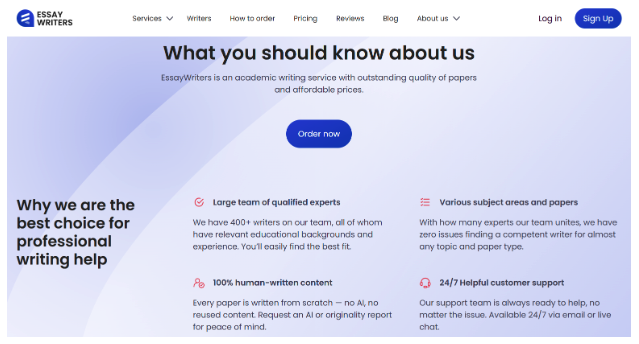Social Security Number on Job Application
It’s a brave new world for job seekers. The FTC reported over 77,000 claims of fraudulent job opportunities in the first three quarters last year, resulting in almost $338 million in loss for people who are often already struggling to get by. That’s not including ghost jobs - those that legitimate employers post to build talent pipelines or conduct market research. These are nefarious actors that are out to scam you from your hard-earned money.
So it’s only natural that when you see an application ask for your social security number, you may be a little bit concerned - and you should be.
Today we’re going to talk about:
Whether or not employers can ask for your SSN (social security number) in an application;
Why they might do so (legitimate reasons);
What should you do if they do ask for one; and
How to avoid being defrauded by bad actors.
Is Asking for Social Security Number on Job Application Legal
The short answer is yes. But there is a but and it’s a big one. There is no law that prevents an employer from asking for your social security number on a job application; however, employers can not require it. In other words, you’re not obligated to provide it and an employer can’t make it mandatory for you to do so.
It is illegal for an employer to deny an application solely because you refused to disclose your social security number.
I want to be clear, we are talking about providing your SSN on a job application. Employers will and are required to ask for it before hiring you, but that’s after an offer has been made.
Why Would an Employer Ask for Social Security on Job Applications
Every employer has their own process and their own reasons for doing things. Some make more sense than others and I can’t speak for all employers. But here are some reasons I’ve heard over the years.
Save Time Onboarding Later
Some employers say it saves them time when completing onboarding documentation later, but I don’t know if I buy into this. New hires still have to complete an I-9 and a W-4, usually both with a social security number. This has to be done during onboarding and an employer can’t fill it out for them.
Sure an employer may require it for payroll and other items, but I don’t buy that it saves that much time. Plus the risk of storing that information is too great.
To Conduct a Background Check
This is more likely the reason in my experience, but it still doesn’t make a lot of sense to collect an SSN so early. Most employers don’t go through the effort of running a background check until much later in the recruitment process.
The only exception to this is if you are applying to a temp agency. When I worked for one of the world’s largest professional staffing firms, I couldn’t even interview people unless they completed an application, and that included a social security number.
Of course, we allowed for partial applications to be completed online and then the candidate could fill in the rest of the application in our office. They knew we were legit, they knew where we worked, so it was a little less intimidating.
Plus, it’s a temp agency so we needed candidates ready to go on assignment with an employer the next day. That meant we needed to clear background checks and other required documentation earlier in the hiring process when compared to our direct-hire line of business or what you would expect in the hiring process of traditional employers.
Another important thing to note on background checks is that while you do need permission from the candidate to run one, employers don’t always need a SSN to do so unless they run a more comprehensive check like an SSN Trace.
Confirm Candidate Identity Before Investing Resources
I can see this reason making more sense for remote roles because people may apply from all over, yet the company may not be able to legally hire from anywhere. The idea is that by asking for a social security number, the company can identify that they have work authorization before spending time on hiring and screening activities.
However, you would still need the consent of the candidate before an employer could run any type of background check and I’m not sure what would prevent a candidate from making up a fake SSN. It may be more of a deterrent if anything, but it probably deters qualified applicants as well. I’ll talk more about that later.
Security Clearances
Suppose you apply for any job that requires a security clearance. In that case, it’s much more common for that organization to request an SSN on the official application says Laura Dujinkski, a 5-year Recruiter and HR Professional. Keep this in mind when applying to companies that work with the Department of Defense or the Department of Transportation, such as aerospace and defense organizations.
While I’ve never personally been involved in the security clearance process, I do know that it can take 120 days or longer to get one, making it necessary to collect all necessary information as soon as possible.
Should an Employer Ask for a Social Security Number on Job Applications
My personal stance is no, they should not. The benefits do not outweigh the risks and employers are opening themselves up to liability by asking for it too early.
Some states have requirements that companies must comply with if they ask for a social security number on a job application. New York and Massachusetts, for example, require employers to put encryption in place to protect applicant privacy when collecting sensitive information.
If you ask for any kind of sensitive information, such as a social security number or driver’s license, you have an increased responsibility to protect that information in your ATS (applicant tracking system). And let’s be honest, most of them aren’t that secure.
And that’s just the liability exposure. We haven’t talked about the fact that the majority of job hunters feel uncomfortable providing sensitive information at an early stage in the hiring process. Many of them will stop completing the application and move on. Those few who do complete it then start out with a sketchy vibe about your company and job opening.
By asking for an SSN on an application, you’re probably losing out on the most qualified applicants.
And don’t take my word for it. Even SHRM (Society for Human Resource Management) recommends that employers only request social security numbers when absolutely necessary at the background check stage and avoid requesting unnecessary information earlier in the hiring process.
Should You Give Social Security Number on Job Applications
The FTC (Federal Trade Commission) explicitly says NOT to put your social security number ssn or banking information on an application or resume.
I would probably follow this advice. Identify theft is a big problem and you want to share sensitive information with others only when absolutely necessary. However, if it is a job you’re really excited about, here are some steps to protect yourself before entering your SSN on an application.
Verify the Employer
Just because they’re asking for an SSN doesn’t mean they’re not a legitimate company with a legitimate job opening. It’s not illegal for them to ask. If the job listing is on a third-party website or job board such as Indeed or LinkedIn, Google the company and make sure they have a website.
Does the website look legit? Can you find reviews about the company on other sites such as Glassdoor, Payscale, TrustPilot, or even the Better Business Bureau?
Do they have a social media presence? Do their social media pages look lived in with activity that goes beyond the past few weeks? If they have a LinkedIn page, are there other employees that are associated with the company? Do they look like legitimate profiles?
Verify the Job
If the company looks legit, you still need to verify that the job is legit. Many scammers impersonate companies and post fake jobs that don’t exist. Go to the company’s website and check to see if the same job is posted on their careers page. If they’re a small organization, they may not have a careers page. In that case, call the company and ask.
Contact the Employer
Contact the employer and politely ask why they need your social security number for the job application. Ask them how it will be used, what measures are taken to protect your sensitive information, and what happens if you decline to submit it.
Many job boards allow you to contact job posters through internal messaging features. Both Indeed and LinkedIn have these options. You can also call the main phone number for the company and ask for human resources or talent acquisition. This is my preferred method because if someone is posting scam jobs, they may be savvy enough to reply to your message on a job board.
Never Send Social Security Number Via Email
If you’ve done the above steps and the employer and job are legit, it’s probably safe to enter your social security number on the application. At this point you know the company is real, the job is real, how they’re going to use your information, and how they’re going to keep it safe.
Never send anyone your social security or other identifying information via email though. Email is not secure and there is absolutely no reason to ask for this information outside of the official application and onboarding process - both of which are system-based and safer to use if set up correctly.
Never enter your social security number without first verifying the job and having answers to the questions I listed above. Never.
What Should You Do If You Can’t Contact the Employer But Can Verify the Job and Company
In this case, I would not enter my social security number into the application. You don’t know how they are going to use it or how they are going to keep it safe. If the application requires it to be submitted, you can list it as 555-55-5555.
They may screen you out because of it and no it isn’t legal for them to require it or decline you based on your disclosure of your SSN, but it’s probably not worth finding an employment attorney to fight it either. But in some cases, they may still consider you. It’s worth a try.
But again, I would never give my SSN out if I can’t verify how they’re going to use it and keep it safe.
How to Identify Job Application Scams that Involve Social Security Number
Beware of any employer that asks you to send them money or offers to send you money in conjunction with asking for a social security number before any formal job offer or onboarding occurs. Real employers won’t ask you to do this.
If an employer you don’t know gives you a check, stop communicating with them and do not cash it.
Also, avoid sharing personal information such as a driver’s license or credit card information in an application.
When Do Employers Typically Ask for a Social Security Number
Most employers will only ask for a social security number after a written offer is accepted, during the onboarding process. They may require your SSN as part of an I-9 or W-4, or to set you up for payroll, or run a background check.
Federal Agency Resources Regarding Social Security Numbers on Job Applications
Equal Employment Opportunity Commission
Social Security Number on Job Application Recommended Reading
Cole Sperry has been a recruiter and resume writer since 2015, working with tens of thousands of job seekers, and hundreds of employers. Today Cole runs a boutique advisory firm consulting with dozens of recruiting firms and is the Managing Editor at OptimCareers.com.
















